Alan Jones: Smashing the economy to bits not the best way to deal with coronavirus
The nation shares a profound understanding of the difficulties confronting the prime minister and his team in dealing with this coronavirus, but our long-term public health requires a strong economy, and right now we are smashing ours to bits, writes Alan Jones.
Opinion
Don't miss out on the headlines from Opinion. Followed categories will be added to My News.
- Coronavirus shutdown forces long queues at Centrelink
- Minister admits MyGov didn’t crash from ‘cyber attack’
Nothing that I might write should dilute the profound understanding we all share of the difficulties confronting the prime minister and his team in dealing with this coronavirus.
But then, in reaction to the thousands of teenagers gathered on Bondi Beach in Sydney on a hot Friday, in breach of a specific protocol outlined by the prime minister, the hammer fell on Sunday night, nightclubs, pubs, cinemas, casinos, restaurants, cafes, gyms, entertainment venues, all closed indefinitely from midday Monday.
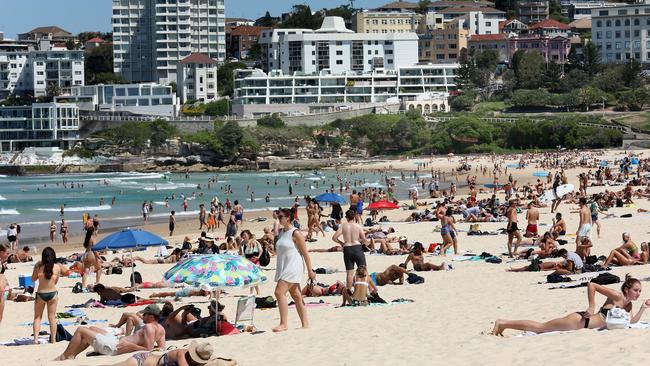
Previously, the prime minister had also vowed to “keep Australia running”.
There is a simple trifecta which applies to the pandemic, also articulated by the prime minister early on — minister to the health of the most vulnerable among us; keep businesses in business; and, keep those in work at work.
There is a very good reason for maintaining the last two components of the trifecta.
Yet you have a prominent businessman writing to me saying: “I am deeply concerned about the current measures and the approach. The notion of ‘flattening the curve’ still means the population will get it … the cost of doing this is devastating for our economy and our way of life … we risk tearing our economy apart. Businesses will go broke. The longer this continues the more will go broke.”

This leads to two points.
First is this. In a world population of 7.7 billion people, World Health Organisation (WHO) figures show, as I write this, worldwide cases, in 189 countries, at 332,134. Worldwide recovered cases are at 96,958.
So the “active” cases are 222,740.
But of that 222,740, 210,442, or around 95 per cent are regarded as “mild”.
The death total figures are instructive, 14,436.
But if we take the deaths in China, Italy, Iran, Spain and France out of the equation, and they equal 12,740, in the remaining 184 countries, the deaths total 1696.
The WHO puts the worldwide serious or critical cases at 10,298.
But again, 8155 of those are in China, Italy, Iran, France and Spain.
So in the other 184 countries there are 2143 serious or critical cases.
Surely these things put the issue in perspective.
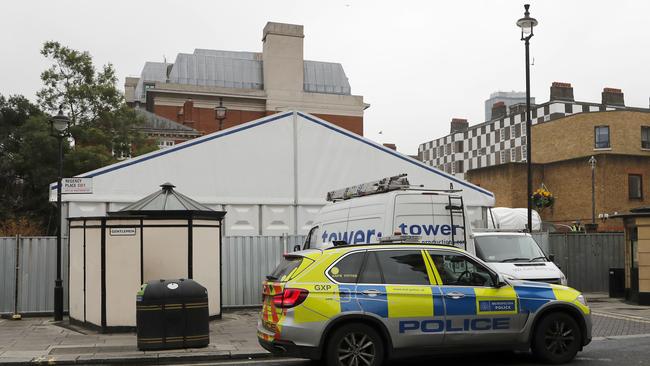
The issue, surely isn’t how many of us get it, but how many deaths are there, in our case seven, and how many cases are critical, in our case, two.
And of the 189 countries, 98 have reported no deaths.
And even in NSW, where, as I write, there are 669 “cases”, and I stress, “cases”, not deaths or critical, that is 1.2 per cent of the 53,000 tests that have been carried out.
Or, consider America, where 30 million people contract the common or garden flu every year and 37,000 people die. Currently, there are 348 deaths in America.
Against those statistics, we must soberly accept what the prime minister said on Sunday night that: “Once you start putting these sorts of arrangements in place, we should have the expectation that they will remain in place for six months.”
Surely, it’s wishful thinking to imagine that nightclubs, pubs, cinemas, restaurants, cafes, and entertainment venues can survive.
Some examples bear witness to the economic pandemic that confronts us.
The tourism industry argues that it is facing extinction with losses of billions of dollars a month — $4.9 billion from the domestic travel market and $3.96 billion from international tourism.
They are forecasting a loss of 330,000 jobs, a salary sacrifice of between nine and 13 billion dollars.
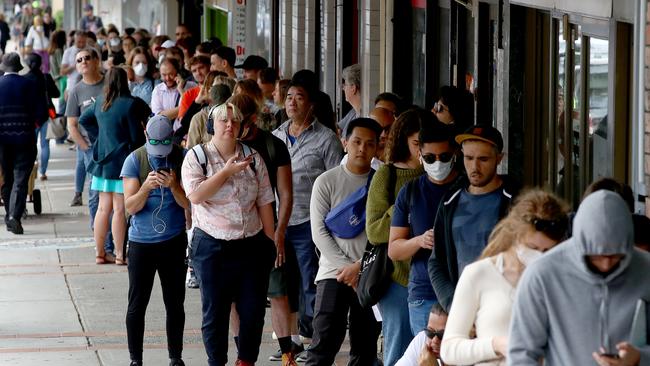
There are 470,000 small businesses employing a total of between four and five million people. Where is there work for the carpenter, the plumber, the electrician and the truck driver?
CBD stands for Central Business District. It is not kept alive just by banks.
There are solicitors, accountants, architects, dentists, jewellers, coffee shops, sandwich bars, pharmacies, cafes, restaurants, bottle shops, newsagencies, people selling shirts and suits and dresses and hats and shoes. Capital cities now resemble morgues.
I know there is a proposal to boost cash flow for employers with grants of up to $100,000 so that they can keep operating and pay rent and other bills, and they are to receive a payment equal to 100 per cent of the withholding tax on employees. But that’s not available until April 28.
What happens to the Qantas employees? Qantas has stood down two thirds of its 30,000 workforce, at least until the end of May.
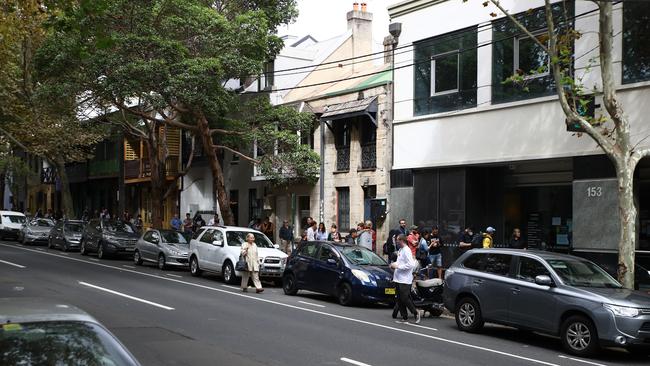
Of course, you can’t work if there is no work. But surely the $715 million that the government has given to the industry is not to improve the share price but to assist the worker.
And if we really wanted to assist the worker, why wouldn’t we use superannuation to stimulate the economy, to put money in people’s pockets.
Suspend the employer contribution of 9.5 per cent for the next six months and put it into the worker’s pocket.
No added cost to the taxpayer or the business, but a stimulus of $100 billion.
Outlaw gatherings of 500 people and indoor gatherings of more than 100. Those decisions are fully understood.
But when you cancel 65,000 events across Australia, 380,000 people are out of work. $100 million forgone in lost income, in a week.
Opera Australia had 60,000 tickets sold to West Side Story.
The whole cast is now out of work.
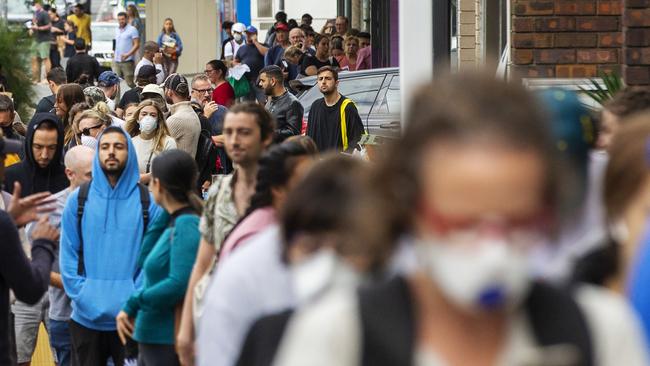
Who looks after these people? Many of them require access to healthcare professionals.
But, people either can’t afford treatment because they are out of work, or they are concerned about contracting the virus.
More than 340 psychiatrists have written to Health Minister Greg Hunt.
They have asked for the Medicare rebate for patients to be applied to online Skype consultations.
Medicare currently subsidises 10 mental health sessions per year, but under the rules, they must be face-to-face. Surely the rules should be changed, yesterday.
The letter to Minister Hunt says, “The mental health of existing and new patients will be compromised; lives will be lost and hospital and community services will be rapidly overwhelmed.”
Boris Johnson, has provided, via a brilliant 39-year-old Chancellor, Rishi Sunak, a simple solution.
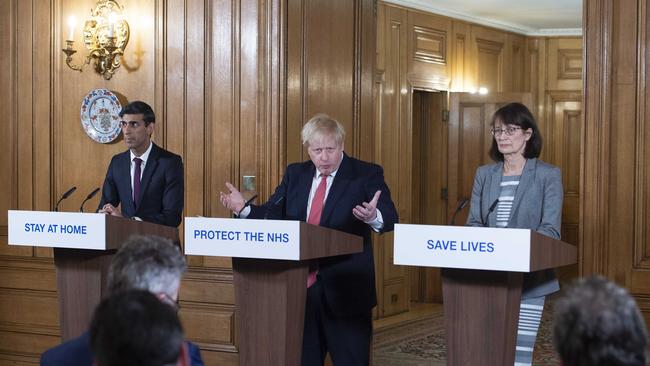
As Tony Abbott argues, if the economy is in a coma, pay for the life support.
The British Chancellor has said, for the first time in the history of the UK, that the Government will pay employers 80 per cent of the salaries of people not working so they can be retained on the payroll. Pretty simple.
We may well be in a war, not just against the virus, but in favour of common sense.

